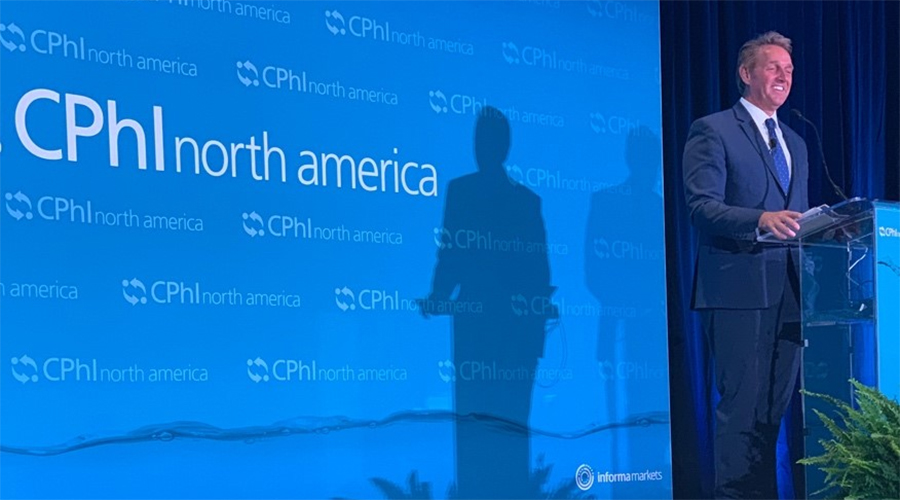Can Pharma Expect More Skilled Worker Visas in the Future? Don’t Count on It, Says Former Senator Jeff Flake

CPHI North America kicked-off on Tuesday, April 30, with a keynote address from former U.S. Senator Jeff Flake (R-AZ). His talk centered around the current gridlock in Washington, adding rich context to some of the big issues up for debate, including healthcare and free trade.
We sat down with the former senator shortly before his address to discuss the trajectory of another potent topic: immigration reform. Despite their indispensable role in the pharma supply chain, the ability of U.S. companies to hire the best talent from around the world has recently been thrown into doubt.
It’s an area that Mr. Flake has a deep affiliation with. As a newly elected Senator in 2013, Mr. Flake joined the so-called Gang of Eight, which developed a bipartisan immigration bill. He cites this as one of the last major pieces of bipartisan legislation, though it was ultimately unsuccessful (it passed the Senate but lacked support in the House). Six years on, immigration is even more politically-charged. So we asked: Is reprieve around the corner, or should we expect more of the same?
The following exchange has been lightly edited for clarity and brevity.
CPHI: Where do you see immigration going? Particularly as it concerns skilled immigrants, such as those working in the pharmaceutical industry.
Mr. Flake: Immigration? Not anywhere good. It's interesting; we could have, prior to five-to-six years ago, removed the highly skilled immigration portion and passed it on its own. That was popular enough among Democrats and Republicans, just like another issue — the Dreamers.
We could have taken that and passed it on its own. But we held it back and combined it in a comprehensive way with the less popular parts. Now we couldn't pass any of it on its own. Even those narrower categories have been politicized, in particular with the President just kind of making broad generalizations. If you're a foreigner and you're here, and you have a job, you're taking that job from an American. And obviously that's not the case, but it has it become too easy to use that kind of language.
CPHI: So you see you don't see any kind of skilled visa expansion or reform happening in the near future?
Mr. Flake: No, I don't see it happening. That was part of the comprehensive bill we did. I had something for years called the staple act, which basically meant you staple a green card to the diploma for everybody in the STEM fields. And we included that and then some — we broadened that in the bipartisan bill. But the notion of something like that passing today, it's difficult to see, because I think when the Democrats come back into power you have a hard time getting any crossover support.
It's just the immigration issue has become very, very polarized, perhaps more than anything else.
CPHI: And it's not necessarily about the highly skilled workers, it’s the broader debate?
Mr. Flake: No it's not, but that's been caught up here. As I said, I think we could have passed that on its own, but we held that as a sweetener for these other things. And now, that would be very difficult to pass on its own.
Position your company at the heart of the global Pharma industry with a CPHI Online membership
-
Your products and solutions visible to thousands of visitors within the largest Pharma marketplace
-
Generate high-quality, engaged leads for your business, all year round
-
Promote your business as the industry’s thought-leader by hosting your reports, brochures and videos within your profile
-
Your company’s profile boosted at all participating CPHI events
-
An easy-to-use platform with a detailed dashboard showing your leads and performance